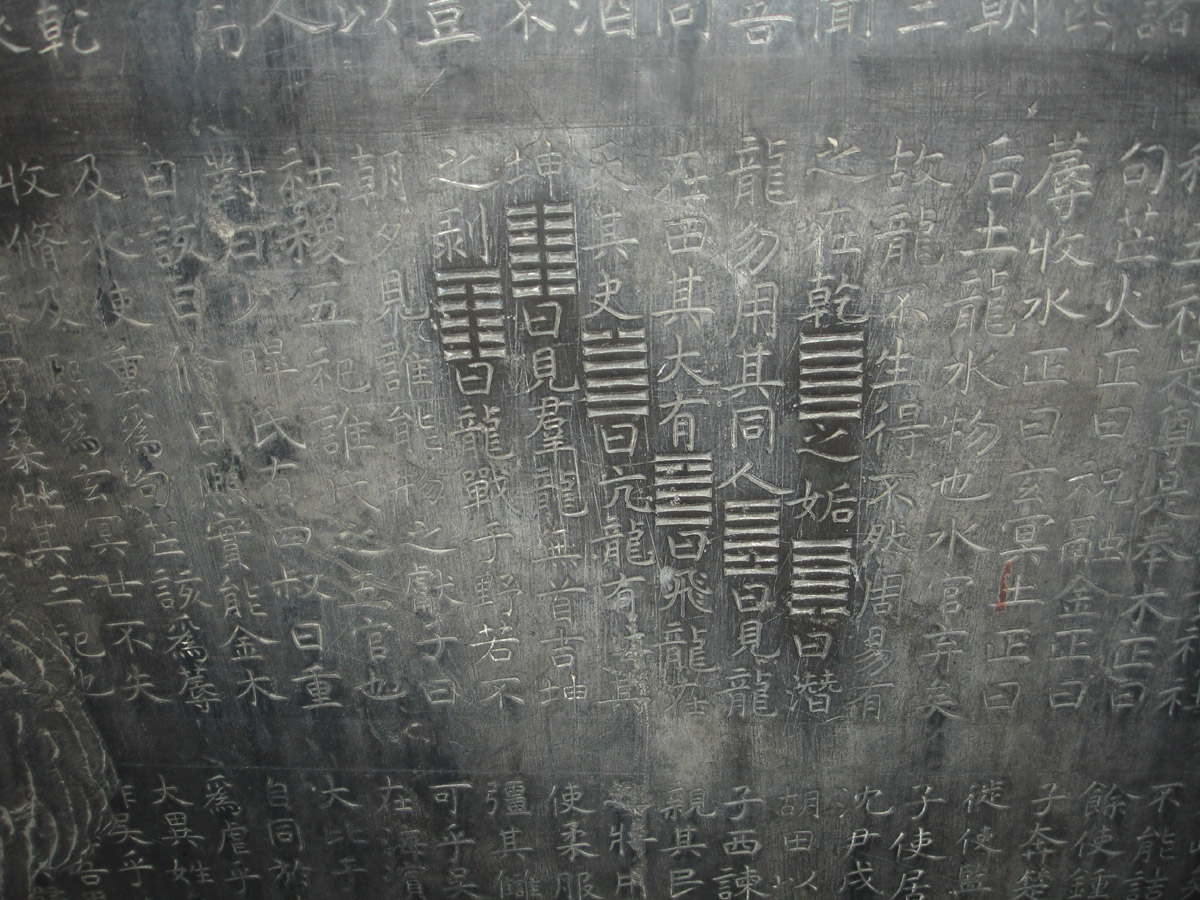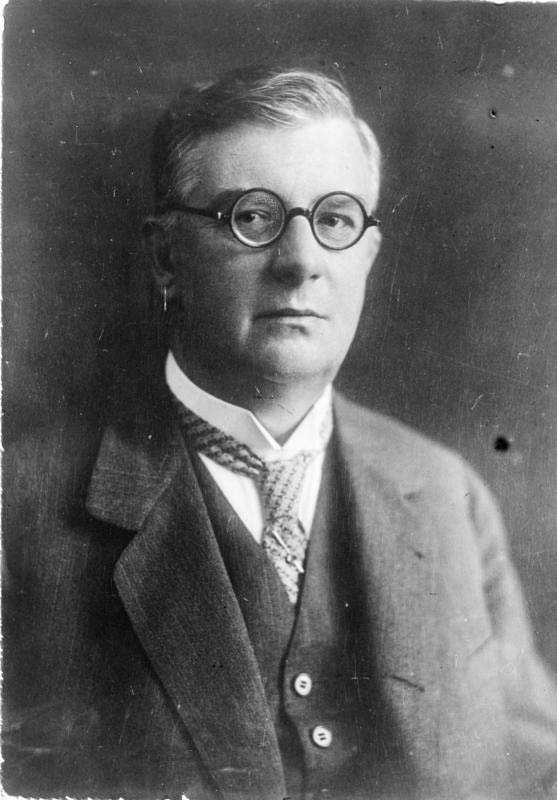I Ching
The 64 Hexagrams of The Book of Changes
The Book of Changes Foreword by C. G. Jung (excerpts)
Even to the most biased eye it is obvious that this book represents one long admonition to careful scrutiny of one’s own character, attitude, and motives.
Since I am not a sinologue, a foreword to the Book of Changes from my hand must be a testimonial of my individual experience with this great and singular book. It also affords me a welcome opportunity to pay tribute again to the memory of my late friend, Richard Wilhelm. He himself was profoundly aware of the cultural significance of his translation of the I Ching, a version unrivaled in the West. […]
Wilhelm has made every effort to open the way to an understanding of the symbolism of the text. He was in a position to do this because he himself was taught the philosophy and the use of the I Ching by the venerable sage Lao Nai-hsüan; moreover, he had over a period of many years put the peculiar technique of the oracle into practice. His grasp of the living meaning of the text gives his version of the I Ching a depth of perspective that an exclusively academic knowledge of Chinese philosophy could never provide. […]
One cannot easily disregard such great minds as Confucius and Lao-tse, if one is at all able to appreciate the quality of the thoughts they represent; much less can one overlook the fact that the I Ching was their main source of inspiration.
I do not know Chinese and have never been in China. I can assure my reader that it is not altogether easy to find the right access to this monument of Chinese thought, which departs so completely from our ways of thinking. In order to understand what such a book is all about, it is imperative to cast off certain prejudices of the Western mind. It is a curious fact that such a gifted and intelligent people as the Chinese has never developed what we call science. Our science, however, is based upon the principle of causality, and causality is considered to be an axiomatic truth. But a great change in our standpoint is setting in. What Kant’s Critique of Pure Reason failed to do, is being accomplished by modern physics. The axioms of causality are being shaken to their foundations: we know now that what we term natural laws are merely statistical truths and thus must necessarily allow for exceptions. We have not sufficiently taken into account as yet that we need the laboratory with its incisive restrictions in order to demonstrate the invariable validity of natural law. If we leave things to nature, we see a very different picture: every process is partially or totally interfered with by chance 1)↓, so much so that under natural circumstances a course of events absolutely conforming to specific laws is almost an exception.
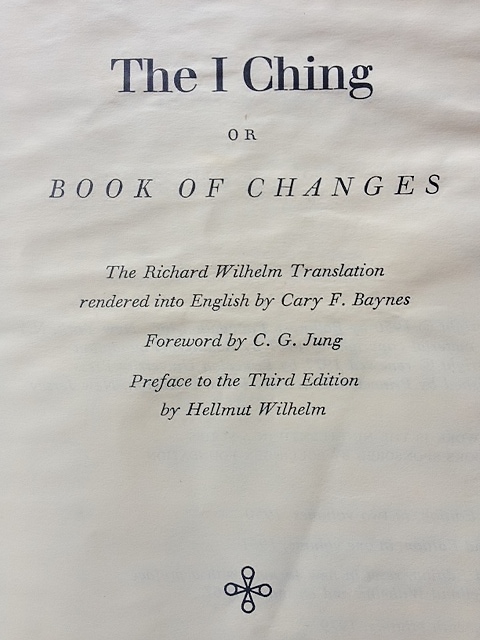 The Chinese mind, as I see it at work in the I Ching, seems to be exclusively preoccupied with the chance aspect of events. What we call coincidence seems to be the chief concern of this peculiar mind, and what we worship as causality passes almost unnoticed. We must admit that there is something to be said for the immense importance of chance. An incalculable amount of human effort is directed to combating and restricting the nuisance or danger represented by chance. Theoretical considerations of cause and effect often look pale and dusty in comparison to the practical results of chance. It is all very well to say that the crystal of quartz is a hexagonal prism. The statement is quite true in so far as an ideal crystal is envisaged. But in nature one finds no two crystals exactly alike, although all are unmistakably hexagonal. The actual form, however, seems to appeal more to the Chinese sage than the ideal one. The jumble of natural laws constituting empirical reality holds more significance for him than a causal explanation of events that, moreover, must usually be separated from one another in order to be properly dealt with.
The Chinese mind, as I see it at work in the I Ching, seems to be exclusively preoccupied with the chance aspect of events. What we call coincidence seems to be the chief concern of this peculiar mind, and what we worship as causality passes almost unnoticed. We must admit that there is something to be said for the immense importance of chance. An incalculable amount of human effort is directed to combating and restricting the nuisance or danger represented by chance. Theoretical considerations of cause and effect often look pale and dusty in comparison to the practical results of chance. It is all very well to say that the crystal of quartz is a hexagonal prism. The statement is quite true in so far as an ideal crystal is envisaged. But in nature one finds no two crystals exactly alike, although all are unmistakably hexagonal. The actual form, however, seems to appeal more to the Chinese sage than the ideal one. The jumble of natural laws constituting empirical reality holds more significance for him than a causal explanation of events that, moreover, must usually be separated from one another in order to be properly dealt with.
Czytaj dalej
| 1. | ↑ | Epicurus’s clinamen – przyp Amin |
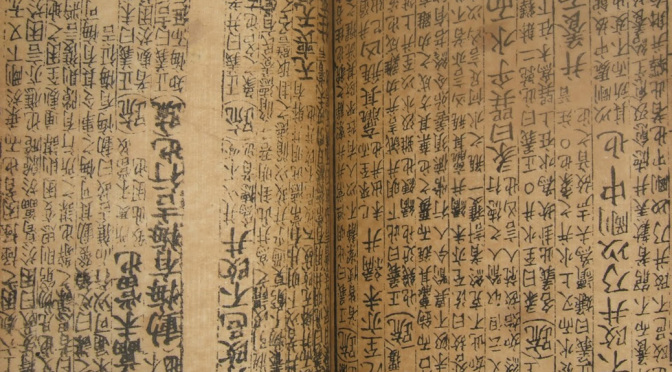
I Ching or the Book of Changes by Richard Wilhelm
May the same joy in pure wisdom be the part of those who read the translation as was mine while I worked upon it.
RICHARD WILHELM, Peking, in the summer of 1923
The Book of Changes—I Ching in Chinese—is unquestionably one of the most important books in the world’s literature. Its origin goes back to mythical antiquity, and it has occupied the attention of the most eminent scholars of China down to the present day. Nearly all that is greatest and most significant in the three thousand years of Chinese cultural history has either taken its inspiration from this book, or has exerted an influence on the interpretation of its text. Therefore it may safely be said that the seasoned wisdom of thousands of years has gone into the making of the I Ching. Small wonder then that both of the two branches of Chinese philosophy, Confucianism and Taoism, have their common roots here. The book sheds new light on many a secret hidden in the often puzzling modes of thought of that mysterious sage, Lao-tse, and of his pupils, as well as on many ideas that appear in the Confucian tradition as axioms, accepted without further examination.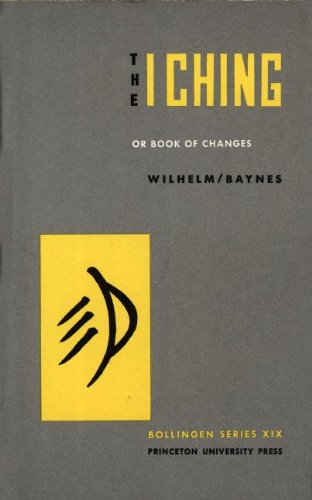
Indeed, not only the philosophy of China but its science and statecraft as well have never ceased to draw from the spring of wisdom in the I Ching, and it is not surprising that this alone, among all the Confucian classics, escaped the great burning of the books under Ch’in Shih Huang Ti 1)↓. Even the commonplaces of everyday life in China are saturated with its influence. In going through the streets of a Chinese city, one will find, here and there at a street corner, a fortune teller sitting behind a neatly covered table, brush and tablet at hand, ready to draw from the ancient book of wisdom pertinent counsel and information on life’s minor perplexities. […]
Yet we must not overlook the fact that apart from this mechanistic number mysticism, a living stream of deep human wisdom was constantly flowing through the channel of this book into everyday life, giving to China’s great civilization that ripeness of wisdom, distilled through the ages, which we wistfully admire in the remnants of this last truly autochthonous culture.
What is the Book of Changes actually? In order to arrive at an understanding of the book and its teachings, we must first of all boldly strip away the dense overgrowth of interpretations that have read into it all sorts of extraneous ideas. […]
We must hold here to the fundamental principle that the Book of Changes is to be explained in the light of its own content and of the era to which it belongs. With this the darkness lightens perceptibly and we realize that this book, though a very profound work, does not offer greater difficulties to our understanding than any other book that has come down through a long history from antiquity to our time.
| 1. | ↑ | 213 B.C. |
